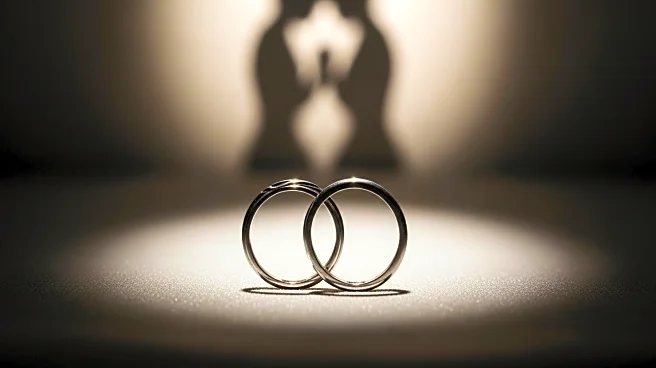What's Happening?
The husband of conjoined twins Abby and Brittany Hensel has publicly addressed rumors regarding the twins having a baby. These rumors were fueled by a viral TikTok account that falsely claimed to be run by the twins, posting images of them with a baby and cryptic messages suggesting a confirmation. Abby's husband, Josh, clarified in a statement to PEOPLE that the TikTok account is fraudulent and requested privacy for his family. The account, which gained significant attention, has since been removed or made private. Josh, a U.S. Army veteran and nurse, emphasized that neither he nor the twins have ever owned a TikTok account and have made their Facebook accounts private. The Hensel twins, known for their public life following a TLC reality show, have chosen to live privately as elementary school teachers in Minnesota.
Why It's Important?
The situation highlights the challenges faced by individuals who have lived in the public eye, particularly in managing privacy and misinformation. The Hensel twins, who have been subjects of media attention due to their unique condition, are now dealing with the repercussions of false information spreading online. This incident underscores the broader issue of social media platforms being used to disseminate misleading content, affecting personal lives and reputations. It also raises questions about the responsibility of media outlets in verifying information before reporting, as well as the impact of viral content on public perception.
What's Next?
The family has requested privacy, and it remains to be seen how media outlets and the public will respond to this request. There may be discussions around the ethical considerations of reporting on personal lives, especially when misinformation is involved. Social media platforms might face increased scrutiny regarding their role in preventing the spread of false information. The Hensel twins and their family may continue to navigate public interest while maintaining their privacy.
Beyond the Headlines
This situation could lead to broader conversations about the rights of individuals to privacy, especially those who have been in the public eye. It may also prompt discussions on the ethical responsibilities of social media users and platforms in preventing the spread of false information. The incident highlights the need for better mechanisms to protect individuals from impersonation and misinformation online.









